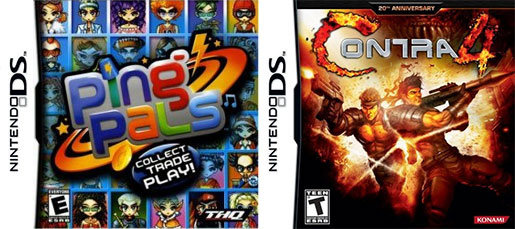
So much crap, so little time
Chris Kohler, writer for Wired and generally awesome guy, posted today a provoking opinion piece on the “questionable” quality of some releases on the Wii. After a recent Game|Life video podcast where he looks at a number of these titles it’s not surprising that he has an opinion on shovelware littering the Wii lineup. What’s more surprising is his full–hearted defense of shovelware. Not of its quality — the lack thereof is in no dispute — but rather the necessity of shovelware to a flourishing system.
Kohler in his opinion piece comes to three basic points on why he believes shovelware is a good thing. They are (in no particular order):
- Shovelware can occasionally be actually good or interesting
- Players like choice, even if that choice is between bad games
- Lots of shovelware demonstrates a hands–off approach by the console manufacturer
Chris has his own reasoning behind each point that you can read for yourself. However, let’s delve into the first point on the benefits of shovelware. Here, Kohler discusses how within the pile of terrible titles that comprise shovelware, a few gems do shine through.
D3 Publisher made its name by selling cheap budget software in Japan, under the Simple 2000 series. And they seem to be doing fine, too… A lot of the early Simple series games weren’t good, but eventually they had some hits.
D3 managed to break into a market that had been controlled by the same few publishers ever since the Famicom days. Could Bold Games or Conspiracy Entertainment bring us the next Oneechanbara? How about the next Zombie vs. Ambulance? You never know; they might come up with a game that’s actually worth twenty bones.
It’s like the old adage, you throw enough crap and something will eventually stick. But there’s a more essential truth hidden underneath this reasoning. And I believe that it’s probably the best reason why shovelware is a “good” thing. Yes, sometimes shovelware can be good. But those few interesting games can’t change the simple fact that most shovelware is utter garbage. When developers are creating shovelware rarely is quality the objective.
Developers don’t choose to work on shovelware to make great games. They make shovelware to pay the bills. Or fund another interesting project. Or simply to get their hands on something they otherwise wouldn’t touch. Shovelware is good not because the titles are good, but because it allows good developers to gain something.

From Ping Pals to Contra
WayForward — the development team responsible for cult Gameboy game Shantae — did exactly this with their titles on the DS. In 2005 they developed Ping Pals for the DS, a launch title that was by all accounts both bad and useless. Last year they released two titles for the DS (Contra 4 and Duck Amuck) that received their fair share of critical acclaim. Yet in an interview with Stephen Totilo of MTV Games WayForward creative director Matt Bozon about how developing Ping Pals was the first step in making titles like Duck Amuck and Contra 4.
“We had to prototype [Ping Pals] in the first 24 hours, having never seen the hardware, which is a huge testament to our programmers,” Bozon said. They had just a handful of weeks to make the game. “We needed dev kits desperately, and here was a chance to get them.”
What did WayForward get for releasing a subpar product? In exchange for temporary thrashing by the critics and a few months spent on development, they got early access to DS devkits. They got a title that went on to sell over 90,000 units. And most importantly, they got the funds to keep on going while they pitched better ideas.
No one outright loves shovelware. But in many ways shovelware is a necessary component of any successful medium. For the consumer shovelware has its own benefits as Chris Kohler addressed. But shovelware isn’t just beneficial for consumers. Developers can also gain a lot from developing throwaway titles.
Leave a Reply